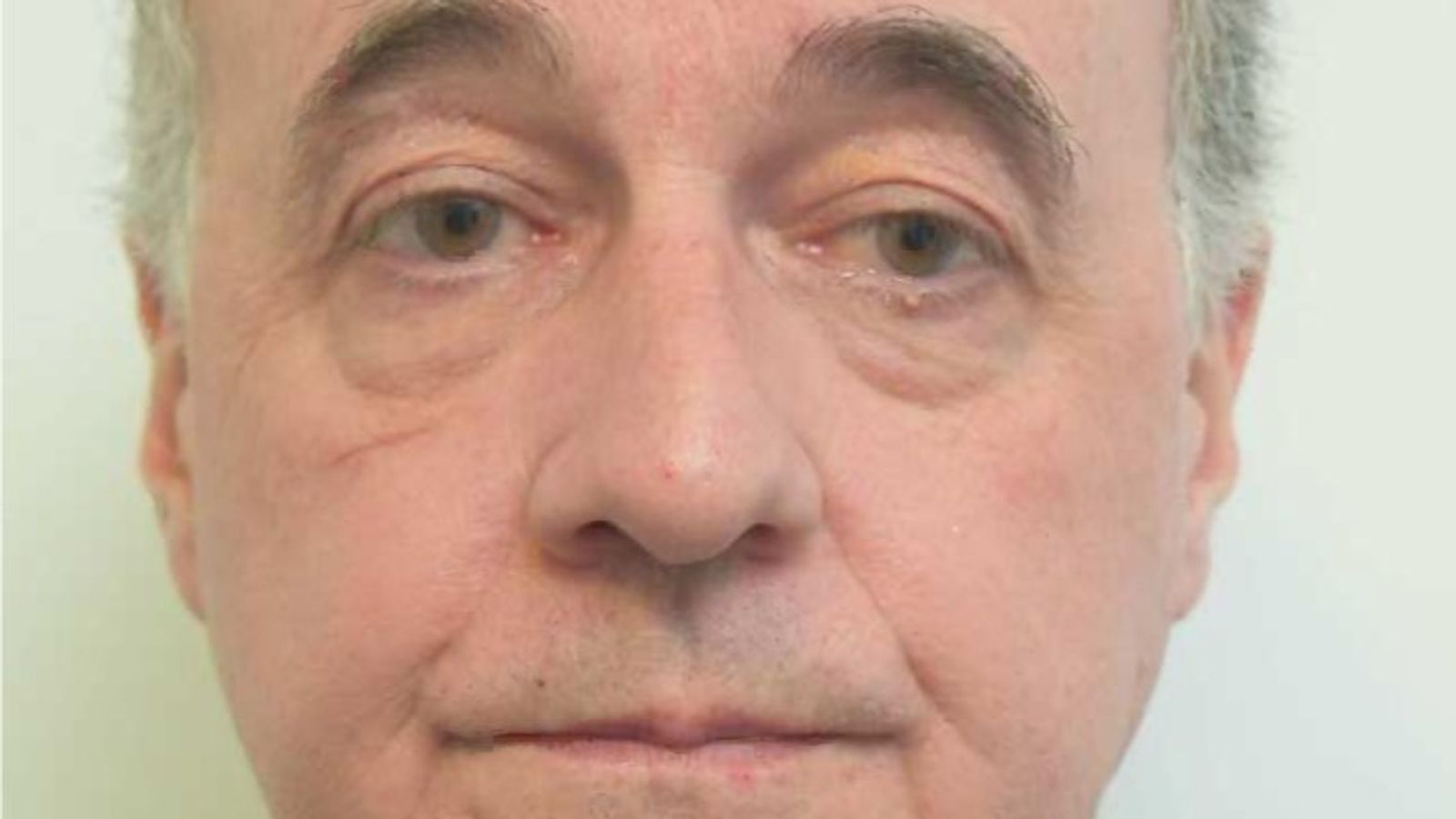A British embassy security guard convicted of spying for Russia will spend 13 years in prison after leaking secrets to a “hostile power”.
David Smith claimed he was depressed, lonely and drinking up to seven pints a day when he collected a “significant amount of material” at the embassy in Berlin to “damage British interests”.
A judge at the Old Bailey dismissed Smith’s explanation and said the ex-RAF serviceman had “developed decidedly anti-British and anti-Western” feelings at the time of his crimes.
Here we take a look at how Smith gathered the information he would later pass onto Russian officials and why he did it.
What did Smith actually do?
The 58-year-old, who was born in Paisley, Scotland, was a security guard at the British embassy in Berlin when he began collecting classified documents in 2018.
He sent two letters to senior officials at the Russian Embassy in 2020, with one exposing the identity of a diplomat who had worked in Russia – referred to as X – as well as details of colleagues.
One of the letters contained “highly sensitive information” about the embassy and its staff and was sent to General Major Sergey Chukhrov, the Russian military attache to Berlin, in November 2020.
The letter, written on British embassy-headed notepaper, provided the names, home addresses and phone numbers of embassy staff and enclosed documents authored by the British embassy’s lead officer dealing with Russia.
Smith saved much of the material he collected about embassy colleagues onto a USB stick under the name “Berlin holiday PicsNew”.
Smith also filmed private offices, including photographs of colleagues’ family and friends on their desks. Police found a number of videos which were collected over an hour in length after his arrest.
It is believed he may have been directed by his Russian handler when he carried out some or all of the filming.
The videos were taken in late June 2021 and captured the layout of the embassy and information about staff.
Smith also filmed a number of sensitive documents he found in trays, including a November 2020 letter from then-trade
minister Liz Truss to Boris Johnson when he was prime minister.
The letter was classified as “secret”.
Smith also took care to film through windows, the Old Bailey heard.
How did he get caught?
A joint operation between British and German police and MI5 was launched after Smith’s second letter to a military attache at the Russian Embassy in November 2020 was traced back to him.
He was arrested after an undercover sting operation in August 2021 where an MI5 officer posed as “Dmitry”, a Russian national providing assistance to Britain.
Smith made a copy of a document Dmitry had brought to the embassy and kept SIM card packaging with the defector’s phone number on it rather than destroying it as he had been instructed.
A few days later Smith was approached by an undercover agent posing as a woman named “Irina”, who told him that she needed assistance as someone had “passed information to the British and the information could be damaging to Russia”.
Read more from Sky News
Russian spy tried to recruit me in London pub, says Tory Party chairman
Russia set for joint naval drills ‘with hypersonic missile’
In hidden camera footage played to the court, Irina asks if Smith can help and if he will meet her again and he replies: “I need to speak to someone and then, once that person can then confirm something, I’m willing to meet again.”
The judge Mr Justice Wall said Smith “could only have been referring to checking with someone at the Russian embassy to verify that she was genuine” and this was evidence he had an ongoing contact there.
Smith was arrested the day after meeting Irina in August 2021.
He later pleaded guilty to eight charges under the Official Secrets Act 1911 and 1920 but claimed he did not intentionally cause any harm.
What damage did Smith do?
Smith’s action had “potentially catastrophic” consequences for “each and every” British official in Berlin, with the cost to the taxpayer of updating security estimated at £820,000, the Old Bailey heard.
Embassy staff were left with “feelings of anger, betrayal and upset and concern at the implications of their details being shared with a hostile state actor”, the court was told.
Why did he do it?
Smith claimed he was angry at his employer, depressed, and drinking seven pints a day after his Ukrainian wife of 20 years returned to her home country at the time of his crimes.
The former security guard, who has a grown-up daughter from a previous marriage, admitted being interested in conspiracy theories espoused by Alex Jones’ InfoWars and David Icke but denied being pro-Russian or having far-right sympathies.
However, the prosecution pointed out his collection of Russian military memorabilia, including a flag and a large toy Rottweiler wearing a Russian military hat, as well as his past support for Russian-backed separatists in the Donbas.
In a televised sentencing, Mr Justice Wall said Smith had developed “decidedly anti-British” feelings and gave the impression to colleagues he was “more sympathetic to Russia, in particular, President Putin”.
The judge also dismissed Smith’s evidence, including his claim that he only wanted to embarrass the embassy.
“I am sure that you committed these crimes intending to assist Russia… Your motive in assisting them was to damage
British interests,” the judge said.
“You were paid by the Russians for your treachery.”
The investigation found Smith was paid at least €1,300 (£1,155), although prosecutors believe that was “just the tip of the iceberg” of what he had been paid.






















